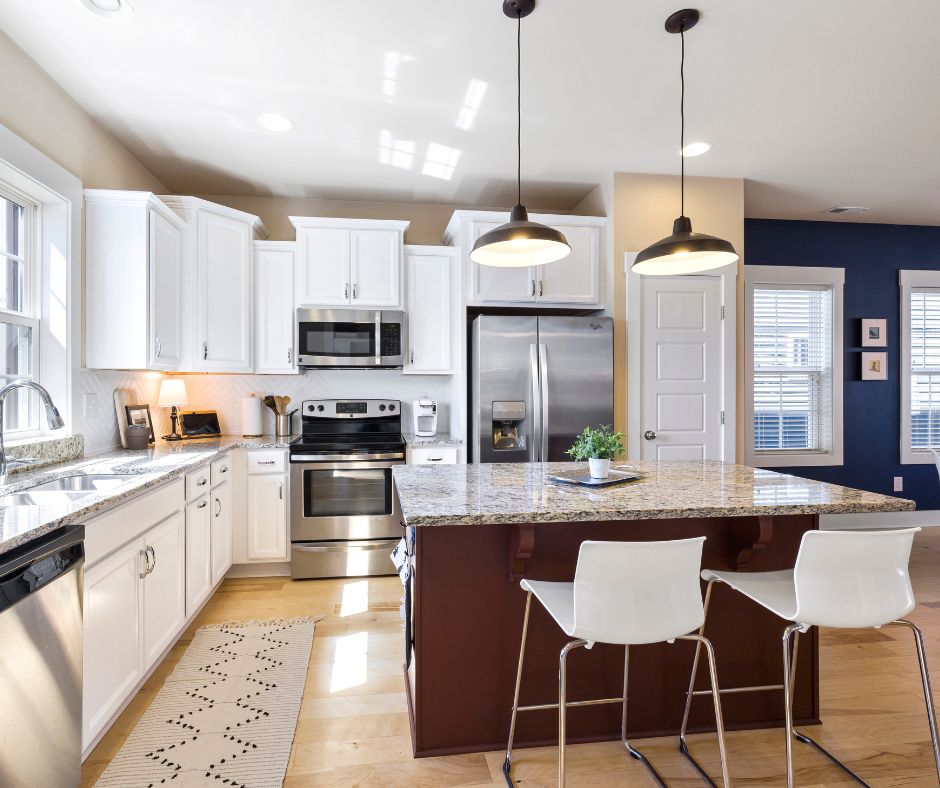Choosing the Best heat-resistant Kitchen Countertop for Your Home: TOP 10 FAQS
Are you on the hunt for the ideal heat-resistant kitchen countertop that perfectly complements your home? Look no further! We help you navigate the world of heat-resistant countertops effortlessly. From materials to durability and style, we’ve curated the ultimate resource to assist you in choosing the best heat-resistant kitchen countertop for your unique space. Let’s dive into the key factors and insights that will empower you to make an informed and satisfying decision for your home.
Table of Contents
What materials are the most heat resistant for kitchen countertops?
Some of the most heat-resistant materials for kitchen countertops include granite, quartz, stainless steel, and porcelain. Granite boasts exceptional heat resistance, enduring high temperatures without damage. Quartz countertops, made from engineered stone, also exhibit impressive resistance to heat. Stainless steel is known for its resilience against heat, making it a popular choice in professional kitchens. Porcelain countertops, especially those designed with advanced technology, offer excellent heat resistance, making them suitable for busy cooking spaces.
How do I determine the heat resistance of a countertop material before purchasing?
Assessing a countertop’s heat resistance involves examining the material’s properties and researching its heat tolerance. Look for information from manufacturers or suppliers detailing the maximum temperature the material can withstand without damage. Additionally, reading reviews or consulting with experts can provide insights into real-world experiences with the countertop’s heat resistance. Conducting tests with hot pans or utensils in inconspicuous areas can also help gauge a material’s heat tolerance before making a purchase.
Are natural stone countertops like granite or marble heat resistant?
Natural stone countertops, such as granite and marble, generally exhibit good heat resistance. Granite is particularly known for its ability to withstand high temperatures without sustaining damage or discoloration. Marble, while heat resistant to a certain extent, might be more susceptible to heat damage compared to granite. It’s advisable to use trivets or hot pads as an extra precaution on marble surfaces to protect them from extreme heat.
Is quartz a good choice for a heat-resistant countertop?
Quartz countertops are an excellent choice for heat resistance. Composed of natural quartz combined with resins, these engineered stone countertops display remarkable resistance to heat. They are designed to endure moderate heat without sustaining damage or discoloration. However, it’s still advisable to use trivets or hot pads to safeguard the surface and maintain its pristine condition over time.
Can I place hot pots and pans directly on a heat-resistant countertop?
While heat-resistant countertops like granite, quartz, or stainless steel can withstand moderate heat, it’s generally recommended to use trivets, hot pads, or coasters under hot pots and pans. These protective measures help prevent any potential damage or discoloration that prolonged exposure to high temperatures might cause. Though the countertop material can endure heat, using additional protection ensures its longevity and keeps it looking pristine.
What are the drawbacks of using highly heat-resistant materials for countertops?
While heat-resistant materials like granite, quartz, or stainless-steel offer excellent durability against heat, they may have certain drawbacks. For instance, some materials might require regular sealing or maintenance to retain their heat-resistant properties. Additionally, while these materials can resist heat, they might be susceptible to scratches, stains, or other forms of damage if not properly cared for or if exposed to extreme conditions.
Are there specific maintenance requirements for heat-resistant countertops?
Heat-resistant countertops often have specific maintenance needs to ensure their longevity and performance. For instance, natural stone countertops like granite might require periodic sealing to maintain their heat resistance and prevent staining. Quartz countertops may need regular cleaning with mild soap and water to preserve their heat-resistant qualities. Stainless steel countertops might benefit from stainless steel cleaners to maintain their appearance and heat resistance.
Do different countertop materials react differently to sudden temperature changes?
Yes, various countertop materials can react differently to sudden temperature changes. For instance, natural stone countertops like granite or marble might be prone to thermal shock if exposed to rapid changes in temperature, potentially leading to cracks or damage. Engineered materials like quartz are more resistant to thermal shock but might still benefit from gradual temperature changes to avoid any potential issues.
Can heat resistance vary within the same material based on its quality or thickness?
Yes, the heat resistance of a particular material can vary based on its quality, thickness, or specific composition. For instance, in the case of granite countertops, higher-quality granite or thicker slabs might exhibit better heat resistance compared to lower-grade or thinner slabs. Similarly, variations in manufacturing processes or additives in engineered materials like quartz might affect their heat-resistant properties.
Are there budget-friendly options available for heat-resistant kitchen countertops?
Yes, there are budget-friendly options for heat-resistant kitchen countertops. Materials like porcelain or certain types of laminate countertops offer good heat resistance at more affordable prices compared to natural stone or engineered quartz. These options provide a balance between heat resistance, durability, and cost-effectiveness, making them suitable choices for homeowners seeking heat-resistant countertops on a budget.
Conclusion
Choosing the best heat-resistant kitchen countertop is a crucial decision for a functional and beautiful kitchen. Armed with knowledge about heat-resistant materials, their maintenance, and considerations for your lifestyle, you’re now ready to make an informed choice. Whether it’s the elegance of granite, the durability of quartz, or the affordability of porcelain, take the next step to transform your kitchen into a culinary haven. Explore your options, consult with experts, and select the countertop that suits your needs. Upgrade your kitchen and elevate your cooking experience today!


Leave a Reply